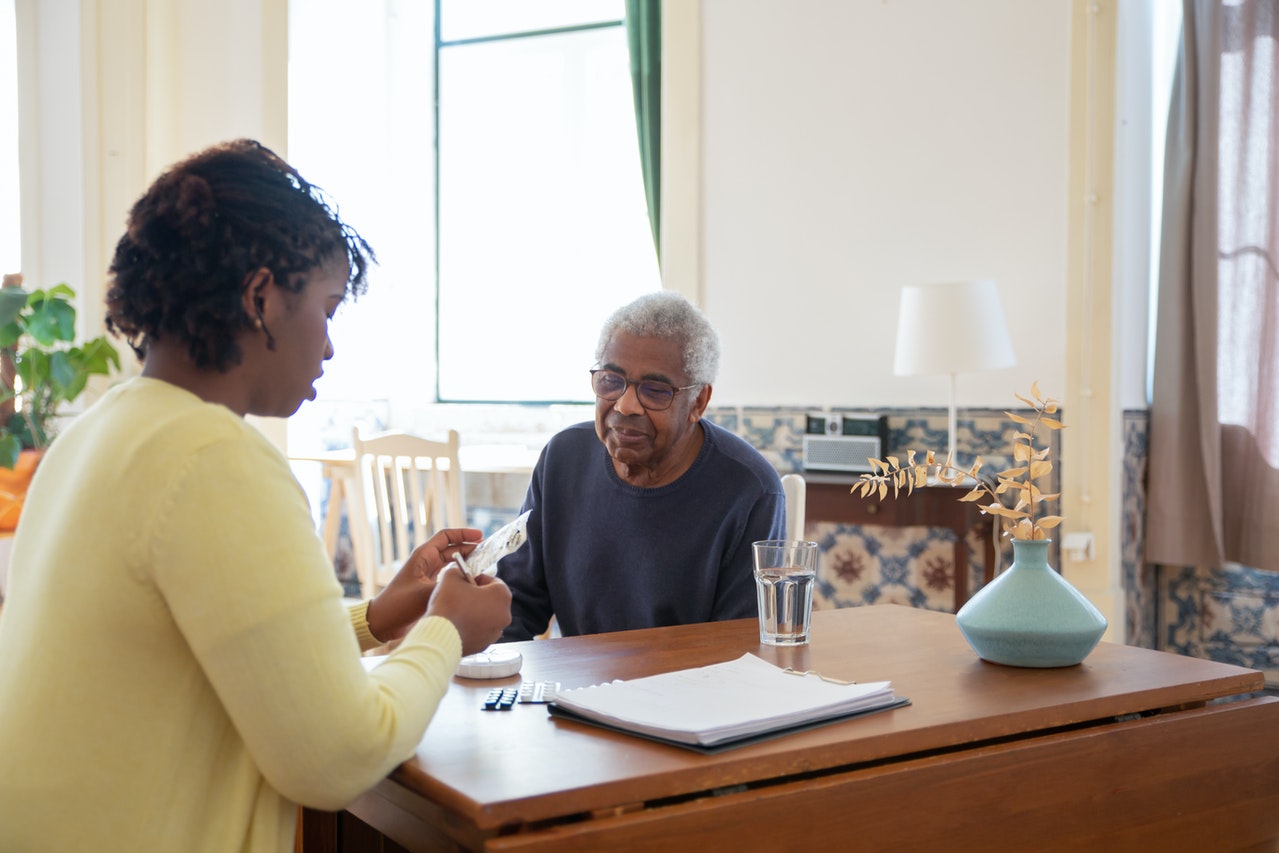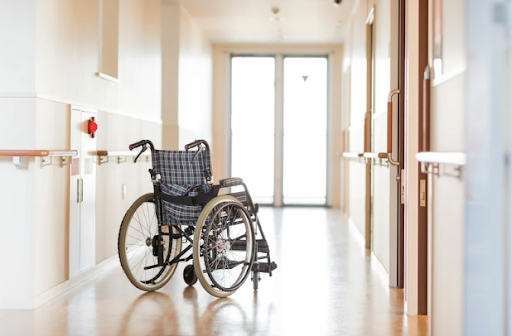Nursing home abuse and negligence

The time will come when each family must decide how to care for a loved one who is elderly or disabled and unable to live independently. Often, a nursing home is the only option. Nursing homes are intended to provide skilled medical care and/or rehabilitation to a patient on a short or long-term basis. The care is provided by doctors, nurses, and certified nursing assistants, as well as physical, occupational, and speech therapists.
Sadly, many nursing homes fail to provide proper care to patients with whom they have been entrusted. A nursing home is negligent when its employees fail to provide proper care and may be held liable for injuries suffered by patients as a result.
Nursing home negligence may take several forms. Employees at nursing homes may give a patient the wrong medication, the wrong dose of a medication, or no medication at all. Sometimes, patients are not assisted with meals and water and, as a result, suffer malnutrition and dehydration. If proper precautions are not taken to protect patients who suffer from impaired mobility or who are bedridden, they can be injured in a fall or suffer a pressure ulcer, also known as bedsores.
Warning Signs of Nursing Home Abuse
Recognizing the early warning signs of nursing home abuse can be the key to protecting your loved one from prolonged suffering. Victims may be unable—or too afraid—to speak up, so it’s essential for families to stay alert. Watch for the following red flags:
- Sudden emotional withdrawal or mood changes
- Uncharacteristic fear or anxiety around certain staff members
- Unexplained bruises, cuts, or broken bones
- Poor hygiene, soiled clothing, or unchanged bedding
- Signs of malnutrition or dehydration
- Frequent infections or bedsores
- Depression, confusion, or personality shifts
If you notice any of these symptoms, document your concerns and consult with a qualified nursing home abuse lawyer as soon as possible to protect your loved one’s well-being. At Seay/Felton, our team serves victims of nursing home abuse and neglect throughout Georgia—including Atlanta, Macon, Warner Robins, and Savannah—and we’re ready to help you seek justice.
Common types of nursing home negligence
Abuse
Tragically, nursing homes sometimes negligently fail to hire employees who are compassionate and caring. Such employees may physically assault patients. A patient who has been the victim of abuse in a nursing home may have bruises, fractures, and other unexplained injuries. If your loved one has suffered an unexplained injury, you should immediately speak with the Director of Nursing, the administrator, and the medical director at the nursing home. If abuse has occurred, the local police department and Adult Protective Services may also be contacted.
Falls And Injuries
Each person admitted to a nursing home is assessed to determine if he/she is at risk for falls. This is called a fall risk assessment. A patient may be assessed as low, moderate, or high risk for falls. If a patient is found to be at risk for falls, the nursing home must implement a fall prevention plan. Often, nursing homes fail to assess patients or properly implement a fall-prevention plan, and patients fall and suffer injuries like head injuries and broken bones.
For instance, if your loved one has been injured due to a slip and fall incident in a nursing home, it’s crucial to understand your legal rights. Seay/Felton LLC Trial Lawyers can provide you with legal assistance in cases of nursing home negligence and slip and fall injuries. Learn more about how we handle Slip and Falls in nursing homes.
Skin Breakdown and Pressure Ulcers (Bedsores)
Many nursing home patients have suffered an illness or injury that has made them immobile and bedridden. Some are unable to control their bladder or bowel. These patients require very specific care. Their clothing and bedding must be kept clean and dry of urine and feces. Moreover, they must be turned and repositioned to relieve pressure every 2 hours. To ensure that patients do not suffer skin breakdown and pressure ulcers, every nursing home should implement a pressure ulcer prevention policy and corresponding procedures.
A patient who is not turned and repositioned may develop a pressure ulcer. As the name implies, pressure ulcers are primarily caused by constant pressure on a body part, eventually cutting off blood flow and resulting in tissue death. Certain areas of the body, such as the sacrum, buttocks, heels, elbows, and shoulders, are particularly susceptible to pressure ulcers. The diagram below shows body parts where pressure may develop if a nursing home has not taken preventive measures.
Pressure on the body from lying or sitting

Prescription Errors
Many patients in nursing homes are required to take medications prescribed by a doctor. Unfortunately, however, employees of nursing homes often make mistakes in giving patients their medications. These mistakes are referred to as medication errors. In nursing homes, medication errors typically fall into the following categories:
- No medication – the nursing home staff forgets to give the patient his/her prescription medication.
- Wrong dosage – the nursing home staff gives the patient the wrong dosage: too little or too much medication.
- Wrong medication – the nursing home staff gives the patient a medication that was not prescribed for him/her.
The consequences of a medication error can be very serious. Medication errors can increase a patient’s morbidity or mortality. In other words, the patient’s medical condition can become worse or the patient may die.
If you or a loved one has been a victim of medication errors in a nursing home, it’s important to understand your legal options. Seay/Felton LLC Trial Lawyers specializes in handling cases of medical malpractice, including medication errors. Learn more about how we can help you in cases of Medical Malpractice involving nursing homes.
What Families Can Do to Prevent Neglect?

While nursing homes are legally responsible for resident care, families play an important role in prevention. Regular visits not only provide emotional support but also give you the chance to observe the environment firsthand. Take note of your loved one’s appearance, cleanliness, mood, and any visible injuries.
Speak directly with nursing staff to ask about care routines, medication schedules, and any recent changes in health. Keep a journal of your observations, especially if you begin to suspect a pattern of neglect. It’s also helpful to review inspection reports and ratings from state regulatory agencies.
Establishing a visible presence at the facility often encourages staff accountability. If something doesn’t feel right, don’t hesitate to ask questions—and trust your instincts. If concerns persist, a consultation with a nursing home neglect lawyer can clarify your legal options and help ensure your loved one receives the proper care they deserve.
When Is It Time to Move Your Loved One?
Deciding to move a loved one out of a nursing home can be incredibly difficult, but it may become necessary if their safety or health is at risk. Repeated signs of neglect are strong indicators that the facility is failing in its duty of care.
Before making a move, document any incidents thoroughly, including photos, medical records, and written complaints to the facility’s staff. Request a formal care plan meeting to voice your concerns and determine whether the issues can be resolved.
If conditions don’t improve, finding a new facility with better ratings, stronger oversight, and transparent communication is a critical step in protecting your loved one. During this time, a nursing home abuse attorney can provide valuable guidance and begin building a case, ensuring that your loved one’s rights are defended even after the transition. Seay/Felton proudly stands up for families across Georgia, including residents of Savannah, Warner Robins, Macon, and Atlanta, to hold negligent facilities accountable.
How the Legal Process Works
When you suspect that a loved one has been harmed due to nursing home negligence, taking legal action may feel overwhelming—but you don’t have to go through it alone. The first step is to schedule a free consultation with a nursing home neglect attorney who can review the facts of your case.
If your claim moves forward, your nursing home lawyer will conduct a thorough investigation, which may include obtaining medical records, interviewing staff or witnesses, and consulting with medical experts to establish a clear link between the facility’s negligence and the patient’s injuries.
In many cases, your attorney will negotiate directly with the nursing home or its insurance provider in an attempt to reach a fair settlement. If negotiations fail, your nursing home attorney will be prepared to take the case to trial to fight for the compensation your family deserves.
Protecting Our Elders: Understanding Nursing Home Abuse and Negligence
Nursing home abuse and negligence are serious concerns affecting elderly residents. If you or a loved one has been impacted by these issues, it’s crucial to seek legal guidance to protect your rights and pursue justice. At Seay/Felton LLC Trial Lawyers, we specialize in advocating for victims of nursing home abuse and medical malpractice. Our dedicated legal team is ready to provide the support you need. Contact us today for a free consultation, and let us assist you in pursuing the justice you deserve.

